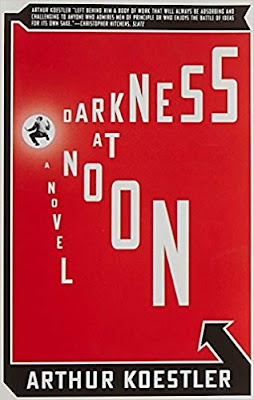 (734 pages)
(734 pages)
I really, really liked this book (actually it's three books - Kolyma Stories; The Left Bank; and The Spade Artist; I decided to read all three in one shot rather than breaking into separate sessions).
Another favorite, highly recommended. I very much took my time reading it.
Initially I was worried about redundancy with prior reading on the camps in Russia,
especially Solzhenitsyn and/or
Primo Levi's wonderful book, or books on the Nazi camps.
But it wasn't redundant. Shalamov has an entirely unique voice. I
see the Chekhov comparison but wouldn't be able to explain it. Spare, unsentimental - yet lyrical (perhaps because of this)? Short story format is not at all my favorite - Shalamov makes it work so beautifully, including in many stories that run just a few pages. Heartbreaking, often - but not hopeless.
There is never any doubt that Shalamov lived through (more accurately: suffered, survived) that about which he wrote. A sad life in so many ways, but look what he left us. 15 years in the camps.
Thoughts -
1. I sometimes wonder "what can I really learn" from stories of humans functioning in such extreme conditions - how can this be instructive, even relevant, to me? Don't know the answer, maybe I just found the stories here well-written and compelling? But it feels like more. Then I think that so much literature is set in more or less extreme settings - whether war or natural disaster or crime or whatever - not sure how to think about this.
2. I'm not finding much new these days in the stories set in Nazi world. Perhaps because the canvas there, while fascinating in so many ways, is relatively limited - only a few years in power, then rapid movement in a war setting; smaller geography (fewer remote places); and bad guys that almost feel a bit cartoonish.
3. In comparison the Soviet canvas goes on for decades, and includes incredibly remote places - where war and political change back in Europe didn't disturb much; where all of those years resulted in interrogators, prison guards, informers, exiles, NKVD types, who in some sense could be considered "regular people" in that continuing society. (Even a longer history if we include the
similar behaviors from tsarist times.)
4. And the setting for Shalamov's stories is even starker because of Kolyma's specific climate - extreme cold so much of the year - and extreme geographic isolation. And the policy of sustained near-starvation and overwork - specific calorie counts - unfavored prisoners slated for "heavy physical work" only (meaning a quick death sentence).
5. Shalamov's focus isn't so much on the cruelties of the system (though those are not overlooked), but on the way prisoners - including literary folks like this author - functioned, and tried to survive, at least until giving up. Entirely unromantic. Dealing with gangsters - apparently they are organized in every prison. Political prisoners. In particular political prisoners with the dreaded "T" (Trotskyist) marked in their file. Nonpoliticals (such as "ordinary" thieves, rapists, murderers) favored in this world, relatively speaking.
6. Shalamov excellent with descriptions of the local geography - taiga, dwarf pines, plants/animals - even rivers and streams - struggling against the cold. Kolyma! Just look up the city of Magadan (the local metropolis, lying well south of the camps) on a map.
7. By far the longest story - doesn't even have a plot - recounts the author getting into paramedic training classes - describes individually all the students and teachers - fascinating look, folks from around the huge USSR with unbelievably disparate backgrounds who were selected for a wide variety of more or less understandable reasons. Initially each is desperate to stay in the program mostly for the incrementally better food.
They weren't in the First Circle, but at least were no longer near the bottom circles. Getting the paramedic position saved Shalamov's life.
8. Spouses hoping for the best, but destined for the worst. Some imagined they could repeat the experience
of the famous Decembrist wives, but it was not to be. Camp bosses knew how to take advantage; visits to the spouse invariably denied.
9. Of the three books - the first is pretty grim - mostly about life in the camps. The second was my favorite - broader look - includes transit prisons, interrogation prisons, paramedic world, lots of hospital action. The third overlapped thematically with the first two to a considerable extent, but then moved on to discuss Shalamov's last days in Kolyma - the releases after Stalin finally died - his lengthy return trip to Moscow - those tales are amazing in their own way.

























